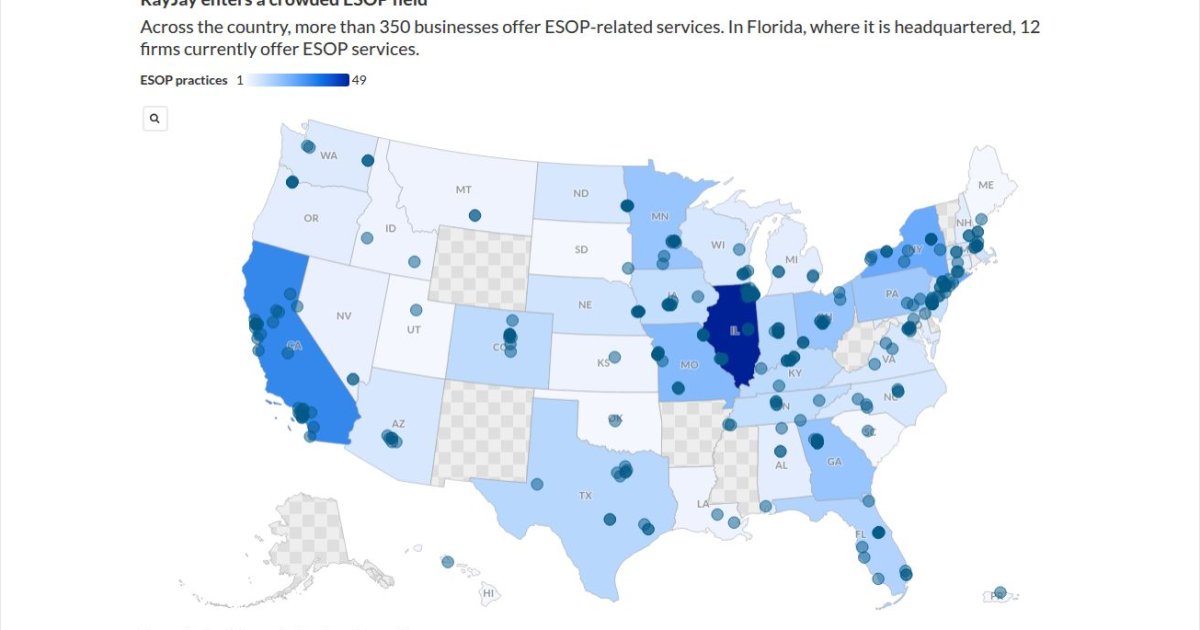After President Donald Trump’s Republican allies raced to meet their July 4 deadline to pass the One Big Beautiful Bill Act, the legislation is on its way to be signed into law.
Financial advisors and their clients can now take the rest of the year to plan for 2026 and beyond. The legislation extends and expands many provisions of the Tax Cuts and Jobs Act and will have a massive impact on the rules for federal income taxes and estate planning, alongside other Trump administration priorities such as defense and border security appropriations, work requirements for Medicaid beneficiaries and an increase to the debt ceiling. Trillions of dollars in additional federal debt as a result of the newly passed legislation pose further questions for investors.
As Trump, Senate Majority Leader John Thune, House Speaker Mike Johnson and Republicans in Congress prepare for an Independence Day victory lap with the signing of the monumental legislation, advisors and tax professionals can find some of the most important provisions to their clients and the key planning and portfolio questions below. In short, it could be the most consequential legislation passed by Congress in decades. Over the next decade, the bill will expand deficits by $3.2 trillion, after savings of $1.4 trillion on the overall cost of $4.6 trillion, according to the Penn Wharton Budget Model.
Beyond the political upshot and inevitable arguments around the economic impact of the legislation, advisors and their clients will likely want to prepare for an array of new tax rules coming into effect as early as this year. No matter their political bent or opinion on the law, it is “exciting that they can take advantage of something like that,” said Mike Byrnes, founder of advisor growth firm Byrnes Consulting. Since clients will no doubt be asking advisors’ thoughts, it makes a great topic for, say, a client or prospect event, he noted.
“It just gives advisors another thing to be really proactive with their clients about,” Byrnes said. “Whether the client leans left or leans right, I think it’s a great opportunity to strengthen their relationship and just be in front of them.”
For all of the frenzied negotiations in Congress over recent months, the legislation generally resembles what most experts predicted earlier this year about Trump and his party’s effort to enlarge the Tax Cuts and Jobs Act while moving their other legislative priorities to his desk in the same vehicle. But the specific details of every aspect of the bill after the tense talks and votes in Congress will reverberate across clients’ financial plans and investment portfolios.
The figures in the below summary of the legislation come from nonpartisan sources, such as the Penn Wharton Budget Model, the Tax Foundation and the Yale Budget Lab, as well as a Bloomberg News analysis of the key provisions.
Key federal tax ramifications
Current federal income brackets will remain the same permanently.The higher standard deduction will remain, with an increase in 2025 to $31,500 for couples, $23,625 for head of household and $15,750 for individuals and ongoing inflationary adjustments.The mortgage interest deduction limit of $750,000 in principal will stay in place.For those with incomes of up to $500,000, the maximum deduction for state and local taxes will jump to $40,000 from 2025 to 2029 from only $10,000. Wealthier taxpayers will still get a deduction of $10,000 or more, depending on their incomes. The new guidelines on so-called SALT deductions consumed much of the tough negotiations in Congress over recent months.The estate tax exemption will climb to $15 million for individuals and $30 million for couples next year. Those levels are permanent and indexed for inflation.The Section 199A pass-through deduction for qualified business income will be permanent, with a slight increase in certain cases.Three incentives for business owners will be permanent: deductions for research and development expenses, a 100% bonus depreciation rate for property assets like machinery and factories, and an allowance to apply depreciation and amortization costs to the basis of interest expenses.The share of employment-related expenses eligible for the child and dependent care tax credit will rise permanently to 50% from 35%, with the total dollar maximum staying the same at $3,000 for one child and $6,000 for parents with two or more dependents. The child tax credit will increase to an inflation-adjusted $2,200 in nominal terms in 2026.Non-itemizers will get a permanent charitable deduction starting next year of $1,000 for single filers and $2,000 for joint households. Itemizers will face a floor of 0.5% next year for their charitable deduction, applying a reduction by that percentage of their annual income to their qualifying donation deduction. Itemizers whose donations are less than 0.5% of their income will not receive the deduction.
What else is changing?
The legislation cuts federal funding for Medicaid and the Supplemental Nutritional Assistance Program, also known as food stamps. Besides adding new work requirements for beneficiaries of both programs, the bill will cut federal aid to states paying Medicaid costs, starting in 2028 with the states that expanded the program as part of the Affordable Care Act, otherwise known as Obamacare, and alter several other terms of the benefits. Reducing Medicaid benefits will slash the deficit by $900 billion over a decade, while the SNAP cuts will save $186 billion. As many as 17 million people could lose health insurance due to the cuts to Medicaid and Obamacare, according to nonprofit health research organization KFF. More than 22 million families may lose part or all of their SNAP benefits, the Urban Institute said in its analysis.Alterations to federal student loan programs could bring budgetary savings of $350 billion over 10 years. The legislation ends subsidized and income-driven loan repayment programs, mandates a new ceiling on the level of student borrowing and places limits on the Pell Grant eligibility.Tax credits for green energy and electric vehicles will phase out, with a Sept. 30 date of elimination for the cars and a rule that wind, solar or other renewable fuel projects be in operation by 2027 to qualify for the incentives.Tips of up to $25,000 will get an exemption from taxes, with income-based phaseouts up to zero for individuals with incomes of $150,000.Large college and university endowments’ taxes on net investment income will climb up to 8% for institutions with the wealthiest holdings from the existing rate of 1.4%.Federal spending on the Consumer Financial Protection Bureau will fall sharply, to 6.5% of the Fed’s operating expenses.New “Trump” investment accounts could obtain $1,000 in federal contributions for children born this year and through 2028. The households could contribute as much as $5,000 each year, with tax-deferred gains until the child reaches 18 years old.Most seniors with modified adjusted gross income of $75,000 or below (or $150,000 or below for couples) will receive a deduction of $6,000 per year between 2025 and 2028. That will eliminate the taxes on their Social Security benefits for the vast majority of seniors during those years. The lost revenue would likely bring Social Security to insolvency as much as two years earlier than the current projection of 2034.Interest payments on auto loans would qualify for a deduction between 2025 and 2028 of as much as $10,000 on their financing for cars made in the U.S.Workers with overtime pay under the Fair Labor Standards Act would get a deduction of up to $12,500 or $25,000 for couples between 2025 and 2028. That deduction phases out at incomes of $150,000 for individual filers and $300,000 for couples.
The main planning and portfolio impacts to watch
What is the balance between growth and investments on one hand and federal debt and inflation on the other, and how will that affect the health of the economy?Which provisions of the legislation could affect clients’ long-term retirement plans and estate documents, and which parts of the bill could make pro bono advice even more important?Will the bond vigilantes force lawmakers to cut spending or raise taxes to reduce deficits, and, if not, what will be the ripple effects across fixed-income assets?





























